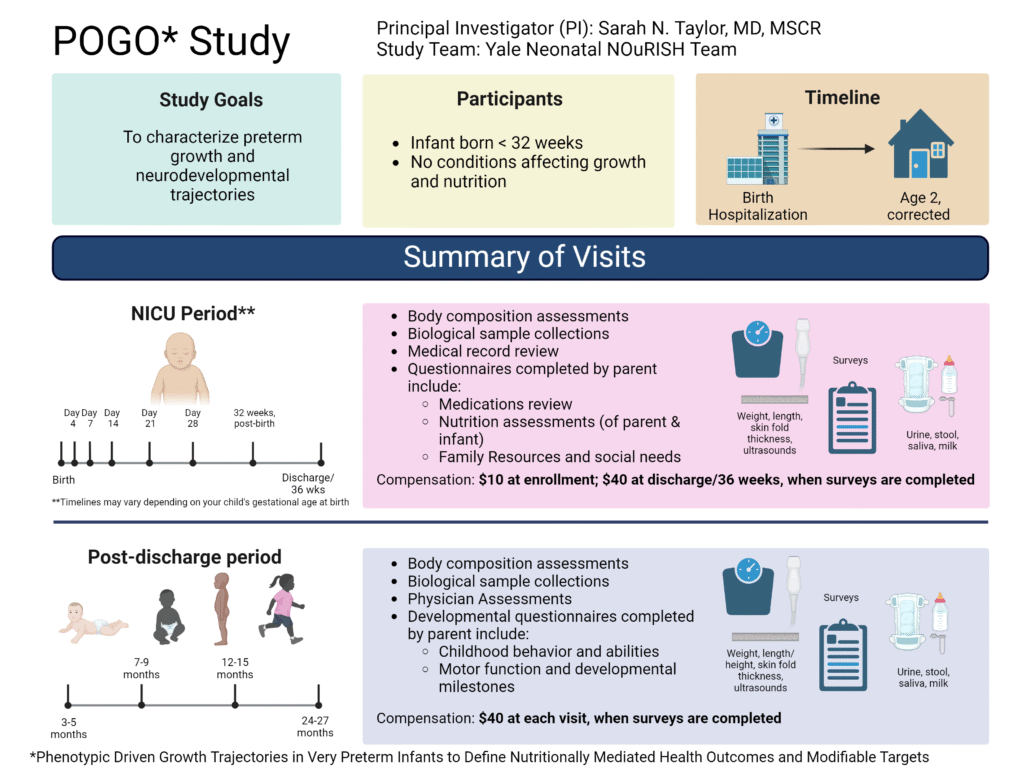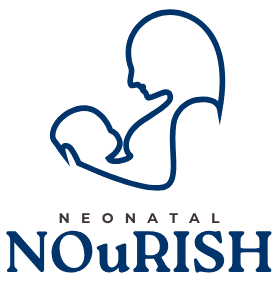The Phenotypic Driven Growth Trajectories in Very Preterm Infants to Define Nutritionally Mediated Health Outcomes and Modifiable Targets study, or POGO (Patterns of Growth and Outcomes) study focuses on understanding how the growth of very premature infants develops based on different factors like their health, the nutrition they receive, body composition, and their physical and social environment. It is a multisite project involving three research/health facilities, including the Yale-New Haven Hospital in New Haven, Weill Cornell Medical College/New York-Presbyterian Hospital in New York, and the Beth Israel Deaconess Medical Center (BIDMC) in Boston.
Preterm babies born less than 32 weeks and admitted to the neonatal intensive care unit (NICU) of the participating health facilities are eligible to take part in the research study. They will be followed by research staff during their NICU hospitalization and until they are 2 years corrected age (2 years past the preterm baby’s original due date). Research activities include participant surveys completed by parents, sample collection (urine, stool, saliva), body composition measurements, and age-specific neurodevelopmental tests.
The goal is to see how early growth patterns affect the baby’s health and development during the first two years of life.


